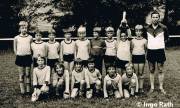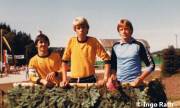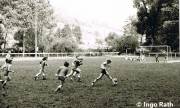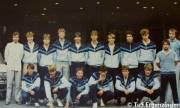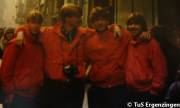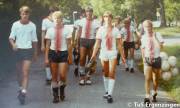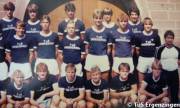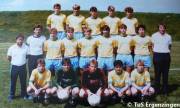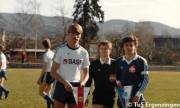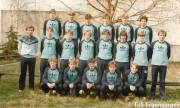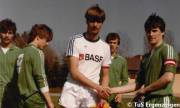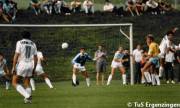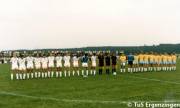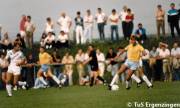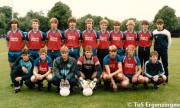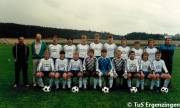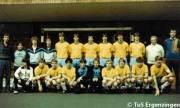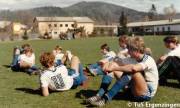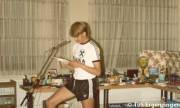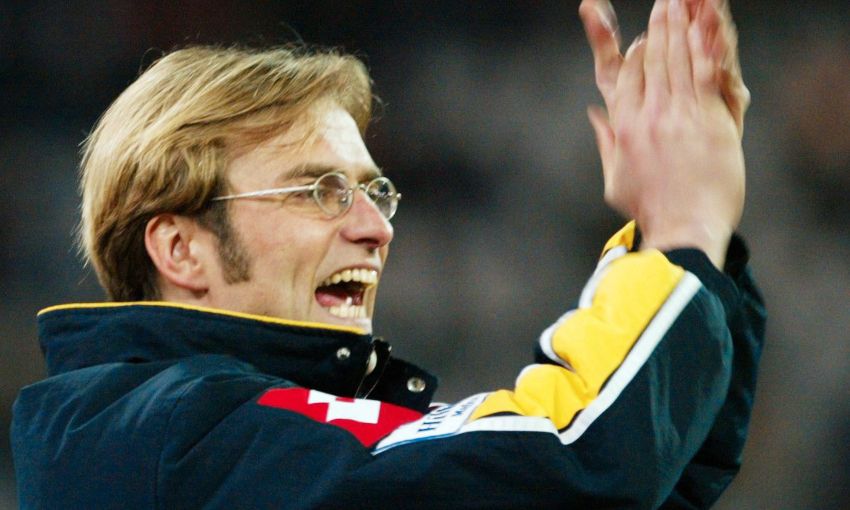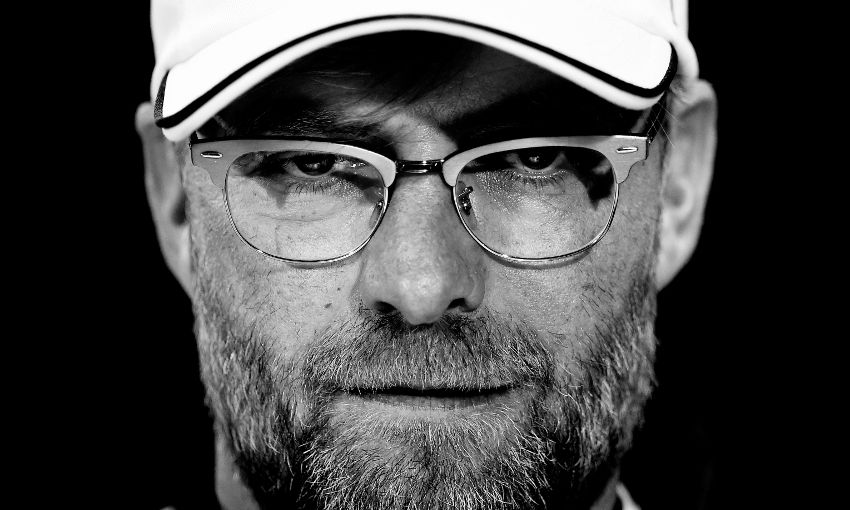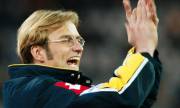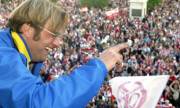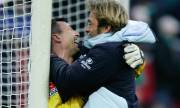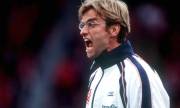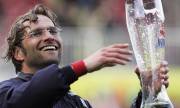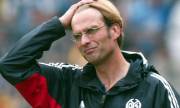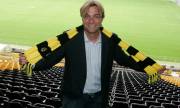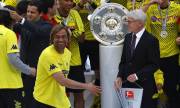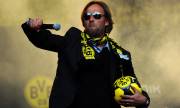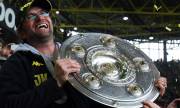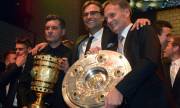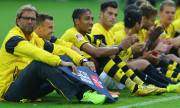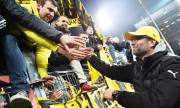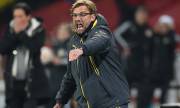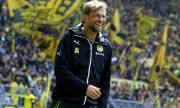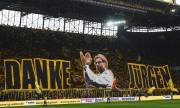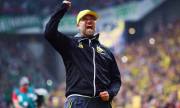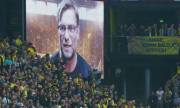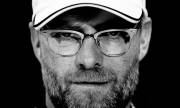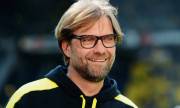Klopp: The man who had to do something in football
On the afternoon that West Germany beat Chile in June 1974 to begin a successful World Cup campaign on home soil, Jürgen Klopp gladly interrupted his own birthday celebrations to watch the game on television.
Two days before the Swabian youngster was to turn seven years old, thoughts of gifts and cake were temporarily put to one side in favour of seeing Franz Beckenbauer and co overcome the South Americans at the Olympiastadion.
The match, decided by a solitary strike from Paul Breitner, is the earliest football memory embedded in the mind of the man who little over four decades later would walk through the gates of Anfield as Liverpool’s new boss.
What unfolded between those two landmarks is the story of ‘Klopp’s Journey to the Kop’ – a brand new LFCTV documentary charting the German’s colourful path to Merseyside that is available for LFCTV GO subscribers to watch on demand above.
It tells the tale of a son born to a ‘football maniac’ father and a ‘full of love’ mother who has made a lifetime habit of overcoming the odds through hard work, determination and an infectious enthusiasm for the world’s game.
Klopp, whose initial affiliation was as a supporter of VFB Stuttgart, says during the hour-long programme: “I needed a lot of luck to have something like a professional career. But it was what I wanted to do.
“When I left school, the head of our school said ‘I hope you can do something in football because if not… I don’t have the best feeling for your future.’ And he had a microphone, so everybody – 4,000 people – could hear it. I said ‘oh, thank you!’ I was sporty, not too bad in sport and not too smart in the rest of school!”
The Reds manager has since achieved far more than just ‘something’ in football, of course, though his career – both on the pitch and in the dugout – has been shaped by ups and downs, with the experiences of lows proving as critical as the highs.
Klopp is the first to pinpoint his deficiencies as a player, but he nevertheless made the professional grade in the second division at Mainz as a striker with an eye for goal, his aerial prowess and understanding of the game completing the package.
The club based on the banks of the river Rhine had never previously reached the heights of the Bundesliga, Germany’s top flight, and rarely threatened to either until a chance opened up at the conclusion of the 1996-97 campaign.
Victory over Wolfsburg on the final day of the season would have seen Klopp and his teammates leapfrog their opponents into one of the three automatic promotion positions.
He recalls: “We were fourth and we had to win, they only needed a draw. It was a very hot day in the summer. We lost 5-4 and it was a very spectacular game.
“I made a goal, not too bad… but I was the reason for a minimum of one or two goals for Wolfsburg! So it was not so cool, but it was the first time we even had the chance to do something like that.
“And it was a little bit of a sign that it was not only a dream and it didn’t have to stay a dream, it could be real if we worked hard. That’s what we tried but we needed another seven years to do it.”
By then, Klopp had hung up his boots and become the coach at Mainz, having grasped the unlikely opportunity given to him in 2001 by the club’s general manager, Christian Heidel, to take up what he felt was his true calling in football.
His motivational techniques and insistence on a pressing approach quickly paid dividends and the team painfully missed out on that elusive promotion to the Bundesliga twice in succession – by a single point and then a single goal.
But he was not to be denied again and, with five rounds remaining in 2003-04, a text message delivered from the boss to the whole squad from a pub as results from elsewhere confirmed their rivals were faltering inspired a run to third place.
Achieving history with Mainz was merely the beginning for Klopp, however, and when the time came in 2008 to bid farewell to the club he had served for 18 years, it was a decision ‘from the mind, not the heart’ and one he believed beneficial to all parties.
So, where next? He explains: “I sat at home in front of my television and had the Bundesliga table up. I thought ‘if you could have a dream, where would you want to go?’ Dortmund. But I had no contact.
“So when they called it was really difficult not to shout ‘yes!’ It was a good day for us and we were really excited because it was a big club with a big stadium. [They were] not in the best situation but I didn’t care, and it was a really good decision.”
That is an understatement. Klopp’s leadership helped Dortmund develop into one of the finest sides in Europe – and they did so with a brand of attacking football which captivated the 80,000 fans at Signal Iduna Park and impartial observers alike.
The Black and Yellows were an unstoppable force at times, toppling the dominance of Bayern Munich to claim back-to-back Bundesliga titles in 2011 and 2012, plus the German Cup to seal a memorable double in the latter year after ‘the perfect final’.
A further 12 months on, Klopp led his players out at Wembley to meet their domestic foes in the Champions League showpiece, having stunned Spanish giants Real Madrid in the last four with a sensational 4-1 win in the first leg.
They were narrowly defeated that evening in London and Dortmund were unable to scale quite such lofty heights again, but the scenes on the stands when the boss said goodbye to BVB in May 2015 explained everything about the job he had done.
It was time for a break, Klopp said. But it did not last long. Because the Kop was calling. “I thought it would be a break for me – cool. I tried to have a real break. The first four months of my break were really a holiday and then came another big club…”
Watch 'Klopp's Journey to the Kop' on LFCTV and LFCTV GO now - click here for details on signing up.

























